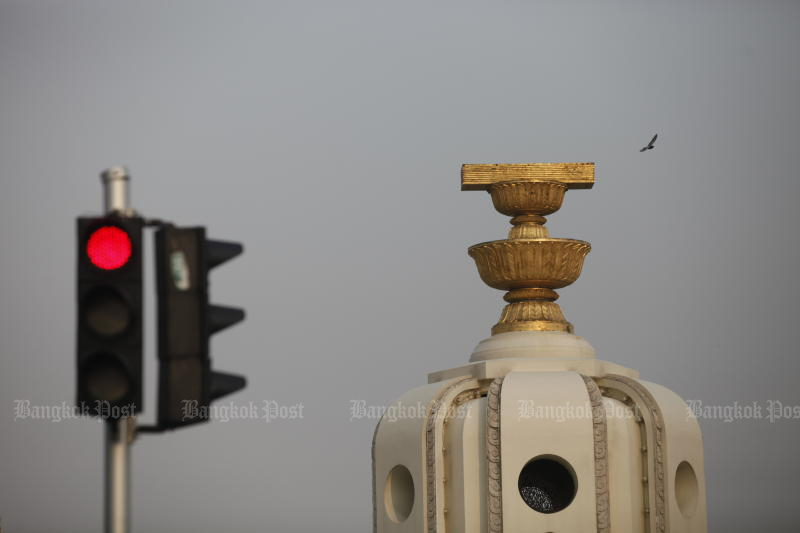
A political tug-of-war is raging over the charter amendment bill, with its critics seeking to block its passage in a third reading vote next week and its supporters determined to push it through.
The locking of horns comes after the Constitutional Court ruled on Thursday that parliament had the power to draw up a new charter ... but that those with the power to establish it must first decide in a referendum whether they wanted a new one.
The court said if those people decided they wanted a new charter and a draft was duly completed, another referendum must be held for the people to endorse it.
Deputy Prime Minister Wissanu Krea-ngam, the government's legal expert, said on Friday that if the bill passed its third reading, someone could seek a further ruling by the same court on its legality.
He said there were no problems with the first and second readings of the bill, though there has been concern as to whether the third-reading vote scheduled for March 17-18 could proceed.
"It is up to parliament to decide. If the bill receives fewer than the minimum threshold of support, things should end well. But if the bill gets through the third reading, someone will likely take the matter to court again," Mr Wissanu said.
Asked by reporters if legislators should vote down the bill and go back to square one, Mr Wissanu said abstaining was another option. He added that some MPs and senators who disagreed with the third-reading vote may skip the meeting or vote against the bill.
The Constitutional Court was ruling on a petition submitted by Senator Somchai Swangkarn and Palang Pracharath Party MP Paiboon Nititawan.
They asked it to clear up doubts over parliament's ability to pave the way for the creation of a drafting assembly to write a new charter.
Mr Wissanu also said it was still not known if a referendum could take place in the near future because a bill on a national referendum had yet to be scrutinised by a vetting panel in a second reading.
He earlier said the government would seek an extraordinary parliamentary session later this month to deliberate a bill on a national referendum in its second and third readings. The government wanted the session held on March 17-19.
The referendum bill, sponsored by the government, passed its first reading in December last year and is necessary for the charter change process.
Senator Seree Suwanpanont said Senate Speaker Pornpetch Wichitcholchai would meet Senate whips on Monday to discuss how to proceed with the third-reading vote.
He said that there were different interpretations of the court's ruling because the full details of the ruling had not yet been released.
Senator Somchai, meanwhile, said that the first and second readings of the bill may have violated the court's ruling.
Therefore, next Wednesday's session of parliament must discuss the court's ruling thoroughly before proceeding with a vote because the ruling was legally binding on parliament, he said.
He said that problems would occur if a referendum took place after the third reading of the charter amendment bill.
Mr Somchai said the ongoing amendment process had already gone beyond the scope laid down by the court's ruling as the bill included a proposal to create a charter drafting assembly to write a new constitution without a referendum being held to first for the voters' views.
Parliament president Chuan Leekpai said yesterday the third reading would proceed on Wednesday as planned as it had already been placed on parliament's agenda.
Sompong Amornvivat, leader of the main opposition Pheu Thai Party, confirmed that opposition parties would go ahead with a charter amendment push in the third reading.
That was justified, he said, since the court had ruled parliament did indeed have the power to write a new charter.
Pita Limjaroenrat, leader of the Move Forward Party, insisted the power to amend the constitution had always been parliament's prerogative.
He also said the third reading could proceed because the first and second readings of the charter amendment bill had been in line with the court's ruling.
However, said Mr Pita, if the charter amendment bill were to be voted down in the third reading, the government should still hold a referendum to ask the public whether they wanted the constitution to be amended.
Deputy Prime Minister and Democrat Party leader Jurin Laksanawisit said the party's charter change stance was unchanged and it would vote for the bill's passage in the third reading.